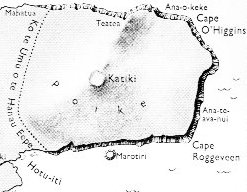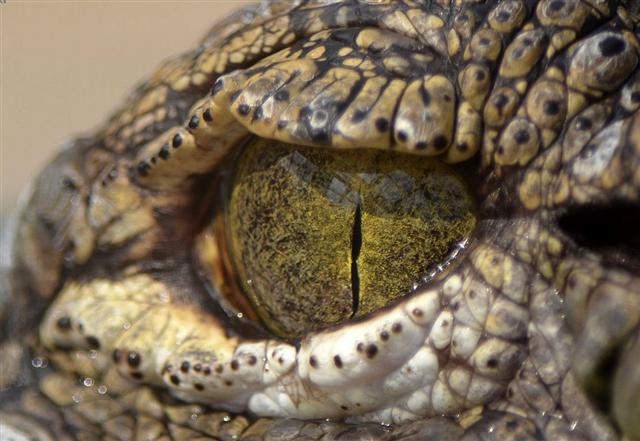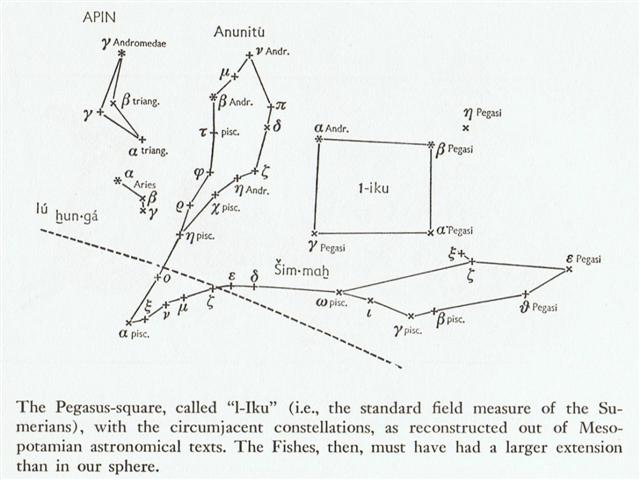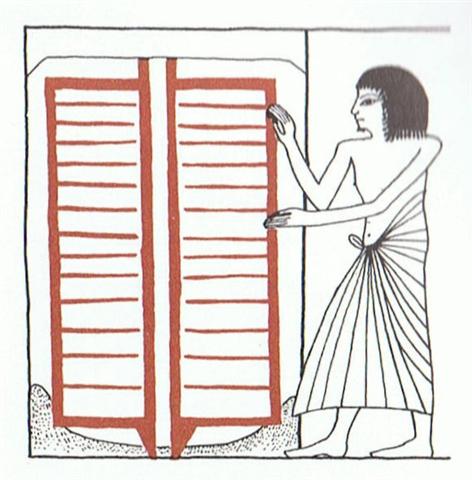Bb11.5
The Shark (mago) glyph Bb11-19 seems to point upwards
- towards the 'Loft':
Poike. MAO. poike
'place aloft'. Barthel 2.

... 'One sought above in the sky, below in
the lap of the earth', as we are informed by variants, but then
Vainamoinen asked his devine mother for help:
Then a man arose from ocean // From the waves
a hero started, // Not the hugest of the hugest, // Not the
smallest of the smallest. // As a man's thumb was his stature;
// Lofty as the span of woman. The
'puny man from the ocean', whose 'hair reached down to his
heels, the beard to his knees', announces, 'I have come to
fell the oak tree / And to splinter it to fragments'.
And so he does. In several variants the oak
is said to have fallen over the Northland River, so as to form
the bridge into the abode of the dead. Holmberg (quoted by Lauri
Honko, 'Finnen', Wb. Myth., p. 369) took the oak for the
Milky Way ...
 |
 |
 |
 |
|
Bb11-16 |
Bb11-17 |
Bb11-18 (436) |
Bb11-19 |
|
Oct 6 |
7 (280 = *200) |
8 |
9 (99 + 183 =
282) |
|
AUG 3 |
4 (216 = *136) |
5 |
6 |
|
FEBR 2 |
3 |
4 (400 = *320) |
5 |
|
April 6 |
7 |
8 |
9 (99 = *19) |
|
AL DAFĪRAH (Tuft) =
β
Com. Ber.
(199.4)
*158.0 = *199.4 - *41.4 |
σ
Virginis (200.4)
*159.0 = *200.4 - *41.4 |
γ
Hydrae (201.0),
ι
Centauri (201.4)
*160.0 = *201.4 - *41.4 |
Al Simāk-12 (Lofty)
/
Chitra-14 (Bright One)
/
Horn-1 (Crocodile)
/
Sa-Sha-Shirū-19
(Virgin's Girdle)
/
ANA-ROTO-3 (Middle
pillar)
MIZAR =
ζ
Ursae Majoris (202.4),
SPICA = α Virginis,
ALCOR
(The Fox) = 80 Ursae Majoris
(202.7)
SADALMELIK (α
Aquarii)
|
 |
|
Al Batn Al Hūt-26 (Belly of
the Fish) /
Revati-28 (Prosperous)
/
1-iku (Field Measure)
MIRACH (Girdle) =
β
Andromedae,
KEUN MAN MUN (Camp's South Gate) =
φ
Andromedae
(16.0),
ANUNITUM =
τ
Piscium
(16.5),
REVATI (Abundant) =
ζ
Piscium
(16.9)
REGULUS
(α Leonis) |
ν
Phoenicis (17.4),
κ Tucanae (17.6)
*159.0 + *182.0 = 341.0 |
No star listed (18) |
ADHIL
(Garment's Train) = ξ Andromedae
(19.3),
θ
Ceti (19.7) |

... Though
Andromeda has its roots most firmly in the Greek
tradition, a female figure in Andromeda's place
appeared in Babylonian astronomy. The stars that
make up Pisces and the middle portion of modern
Andromeda formed a
constellation representing a fertility goddess,
sometimes named as Anunitum or the Lady of
the Heavens ... |
|
e tagata oho era - ki to kava e |
ka oho te Rei |
Tagata itiiti - ma to kava |
kua moe te goe |
|
Oho.
1. To go: ka-oho! go! go away!
(i.e. 'goodbye' said by the person staying behind);
ka-oho-mai (very often contracted to:
koho-mai), welcome! (lit.: come here);
ku-oho-Š te tagata, the man has gone. Ohoga,
travel, direction of a journey; ohoga-mai,
return. 2. Also rauoho, hair. Vanaga. 1. To
delegate; rava oho, to root. 2. To go, to
keep on going, to walk, to depart, to retire; ka
oho, begone, good-bye; oho amua, to
preced; oho mai, to come, to bring; oho
arurua, to sail as consorts; hakaoho, to
send, a messenger. 3. Tehe oho te ikapotu, to
abut, adjoin; mei nei tehe i oho mai ai inei te
ikapotu, as far as, to; kai oho, to
abstain, to forego; hakaoho, to put on the
brakes. 4. The head (only in the composite rauoho,
hair). Churchill.
Rei.
1. To tread, to trample on: rei kiraro
ki te va'e. 2. (Used figuratively) away with
you! ka-rei kiraro koe, e mageo Í, go away,
you disgusting man. 3. To shed tears: he rei i te
mata vai. 4. Crescent-shaped breast ornament,
necklace; reimiro, wooden, crescent-shaped
breast ornament; rei matapuku, necklace made
of coral or of mother-of-pearl; rei pipipipi,
necklace made of shells; rei pureva, necklace
made of stones. 5. Clavicle. őka reirei,
vanquished enemy, who is kicked (rei).
Vanaga. T. 1. Neck. 2. Figure-head.
Rei mua =
Figure-head in the bow.
Rei muri = Figure-head in the stern.
Henry. Mother of pearl;
rei kauaha,
fin. Mgv.: rei,
whale's tooth. Mq.:
ťi, id. This is probably associable with
the general Polynesian
rei, which
means the tooth of the cachalot, an object held in
such esteem that in Viti one tooth (tambua)
was the ransom of a man's life, the ransom of a soul
on the spirit path that led through the perils of Na
Kauvandra to the last abode in Mbulotu. The word is
undoubtedly descriptive, generic as to some
character which Polynesian perception sees shared by
whale ivory and nacre.
Rei kauaha
is not this rei;
in the Maori
whakarei designates the carved work at
bow and stern of the canoe and Tahiti has the same
use but without particularizing the carving:
assuming a sense descriptive of something which
projects in a relatively thin and flat form from the
main body, and this describes these canoe ornaments,
it will be seen that it might be applied to the fins
of fishes, which in these waters are frequently
ornamental in hue and shape. The latter sense is
confined to the Tongafiti migration. Reirei,
to trample down, to knead, to pound. Pau.:
Rei-hopehopega, nape. Churchill.
Moe. To
sleep, to lie at full length, to dream, to brood, to
place, to cohabit; moe atu, to leave off, to
desist; moe atu ra, to adjourn, to postpone;
moe hakahepo, to talk in the deep; moe
aherepo, somnambulist, sleepwalker; moe
hakataha, to sleep on the side; moe no,
to oversleep, concubinage; moe tahae, to be a
light sleeper; moe tahaga, a sleeper;
moe vaeahatu, moe hakaroa, to sleep
sprawling; rava moe, to sleep sound; ariga
moe ki raro, to lie flat on the ground;
tae moe, bachelor; hakamoe, to brood,
to fold the wings; to reserve, to lay up; to
struggle. P Pau.: moe, sleep. Mgv.: moe,
sleep, to lie down, coitus, to shut the eyes. Mq.:
moe, to sleep, to lie down; haŠmoe, to
set down on the ground. Ta.: moe, to sleep,
to lie down. Moea raruga, lying flat.
Moeaivi, thin. Mq.: ivi, haŠivi,
id. Ta.: ivi, id. Moega, mat. Pau.:
moehega, bed. Mgv.: moega, a sleeping
mat. Mq.: moena, moeka, mat, floor
cloth, bed. Ta.: moea, bed. Moemata,
to sleep with the eyes open; mea moemata,
phantom. Moemoea, a dream, vision;
tikeahaga moemoea, apparition by night. T
Mgv., Mq., Ta.: moemoea, dream. Churchill.
Mgv. Moemoe, to steal, to purloin at a food
distribution. Mq.: moemoe, to seize, to
grasp. Churchill. Ta.: 1. Moemoe, ambush.
Ha.: moemoe, id. 2. Moemoe,
Phyllanthus simplex. To.: mohemohe, a tree.
Churchill. Mq.: Moehu, exiled, banished,
prisoner of war. Ma.: morehu, a survivor.
Churchill. Goe. Milky Way.
Vanaga. |
There were no crocodiles on Easter Island but there were
sharks.
...
Fetu-tea [Pale Star = Saturn] was the king. He
took to wife the dome of the sky, Te-Tapoi-o-te-ra'i,
and begat stars that shine (hitihiti) and
obscure, the host of twinkling stars, fetu-amoamo,
and the phosphorescent stars, te fetu-pura-noa.
There followed the star-fishes, Maa-atai, and two
trigger-fishes that eat mist and dwell in vacant spots
in the Milky Way, the Vai-ora or Living-water of
Tane. The handsome shark Fa'a-rava-i-te-ra'i,
Sky-shade, is there in his pool and close by is
Pirae-tea, White Sea-swallow (Deneb in Cygnus) in
the Living-waters of Tane
...
... Suppose you had the task to create a dictionary from
German into English, and now in front of you the German
word Rundfunkgeršt must be expressed in English.
This is no great difficulty. Once you know what
the word stands for, the English equivalent will be
'radio receiver'. But let us change the circumstances,
so that the dictionary to be created is from German into
a language spoken far up in the Amazon delta, spoken
only by a handful of people in a small tribe - one of
which happens to be you. Excepting you this little group
of people have had no contact whatsoever with the
outside civilization. The task suddenly becomes very
difficult, even if you were lucky enough to have been
adopted by a German family in your early teens. You are
fluent in both languages, but there is no word in this
hypothetical Amazon language which comes even close to
'radio receiver'. They have never heard about
electricity nor radio waves. They are a 'stone age'
people. It might come as a surprise to you to find that
it would be equally difficult to translate many words
from the language of such an isolated tribe into German
(or English). But I believe it is so. We have never
heard about the basic concepts which many of their words
will refer to. They would be as 'outlandish' for us as
radio receiver for them. The situation on Easter Island
before the 'discovery' of the island by the Europeans
was not very much different. It is a very isolated
island in the vast Pacific ocean and even contact with
the rest of the Polynesians must have been rare.
Therefore I ought to begin this dictionary by first
trying to convey at least some basic knowledge of their
'unfamiliar landscape'. It is a formidable task, but it
would be even more forbidding to run headlong into
creating a dictionary of the rongorongo signs. We need
at least an outline map of their landscape before its
features can be described ...
The date April 10 is day number 100 counted from January
1:
 |
 |
|
Bb11-20 |
Bb11-21 |
|
Oct 10 (*203) |
11 |
|
71 VIRGINIS
(203.6) |
No
star listed (204) |
|
KSORA (Knee) =
δ
Cassiopeiae
(20.1),
ω
Andromedae (20.6),
γ
Phoenicis (20.8) |
δ
Phoenicis (21.5) |
|
April 10 (*20) |
11 |
|
erua ra manu |
kua oho |
|
Egyptian
door |
 |
Phoenician
dalet |
 |
Greek
delta |
Δ (δ) |
... Delta
(uppercase Δ, lowercase δ) ... is the
fourth letter of the Greek alphabet. In
the system of Greek numerals it has a
value of 4. It was derived from the
Phoenician letter Dalet.
Letters that come from
delta include Latin D and Cyrillic Д. A
river delta (originally, the Nile River
delta) is so named because its shape
approximates the upper-case letter delta
(the shape is a triangle) ...
Dalet (dāleth,
also spelled Daleth or Daled)
is the fourth letter of many Semitic
alphabets ... The letter is based on a
glyph of the Middle Bronze Age
alphabets, probably called dalt
'door' (door in Modern Hebrew is
delet), ultimately based on a
hieroglyph depicting a door.

... Sorrowing, then, the two women
placed Osiris's coffer on a boat, and
when the goddess Isis was alone with it
at sea, she opened the chest and, laying
her face on the face of her brother,
kissed him and wept. The myth goes on to
tell of the blessed boat's arrival in
the marshes of the Delta, and of how
Set, one night hunting the boar by the
light of the full moon, discovered the
sarcophagus and tore the body into
fourteen pieces, which he scattered
abroad; so that, once again, the goddess
had a difficult task before her. She was
assisted, this time, however, by her
little son Horus, who had the head of a
hawk, by the son of her sister Nephtys,
little Anubis, who had the head of a
jackal, and by Nephtys herself, the
sister-bride of their wicked brother
Set. Anubis, the elder of the two boys,
had been conceived one very dark night,
we are told, when Osiris mistook Nephtys
for Isis; so that by some it is argued
that the malice of Set must have been
inspired not by the public virtue and
good name of the noble culture hero, but
by this domestic inadventure. The
younger, but true son, Horus, on the
other hand, had been more fortunately
conceived - according to some, when Isis
lay upon her dead brother in the boat,
or, according to others, as she
fluttered about the palace pillar in the
form of a bird.
The four bereaved and searching
divinities, the two mothers and their
two sons, were joined by a fifth, the
moon-god Thoth (who appears sometimes in
the form of an ibis-headed scribe, at
other times in the form of a baboon),
and together they found all of Osiris
save his genital member, which had been
swallowed by a fish. They tightly
swathed the broken body in linen
bandages, and when they performed over
it the rites that thereafter were to be
continued in Egypt in the ceremonial
burial of kings, Isis fanned the corpse
with her wings and Osiris revived, to
become the ruler of the dead. He now
sits majestically in the underworld, in
the Hall of the Two Truths, assisted by
forty-two assessors, one from each of
the principal districts of Egypt; and
there he judges the souls of the dead.
These confess before him, and when their
hearts have been weighed in a balance
against a feather, receive, according to
their lives, the reward of virtue and
the punishment of sin ...
|
The type of glyph explaining the sight of the Full
Moon visible in October 10 (→
8 * 10 = 80) at the Knee of Cassiopeia
...'hair reached down to his
heels, the beard to his knees' ...
is heuheu:
Heu. Offspring
of parents from two different tribes, person of
mixed descent, e.g. father Miru, mother
Tupahotu. Heuheu, body hair
(except genitals and armpits). Vanaga. 1. Heheu;
ivi heheu, the cachalot, bone needle;
hakaheu, spade, to shovel, to grub up, to
scratch the ground, to labor; rava hakaheu,
laborious, toilsome. 2. Hakaheu, affair.
Churchill. M. Heu, to separate, to pull
asunder; the eaves of a house; heu, a single
hair; hau. to hew; heru, to comb;
huru, hair on the body; down; feathers; maheu,
scattered; maheuheu, shrubs; mahuru,
scrub; heuea, to be separated. Text Centre.
Nonoma ran, he quickly
went to Te Hikinga Heru (a ravine in the side
of the crater Rano Kau) and looked around.
There he saw the double canoe way out near the
(offshore) islets, and the two (hulls of the canoe)
were lashed together.
|









-2.jpg)